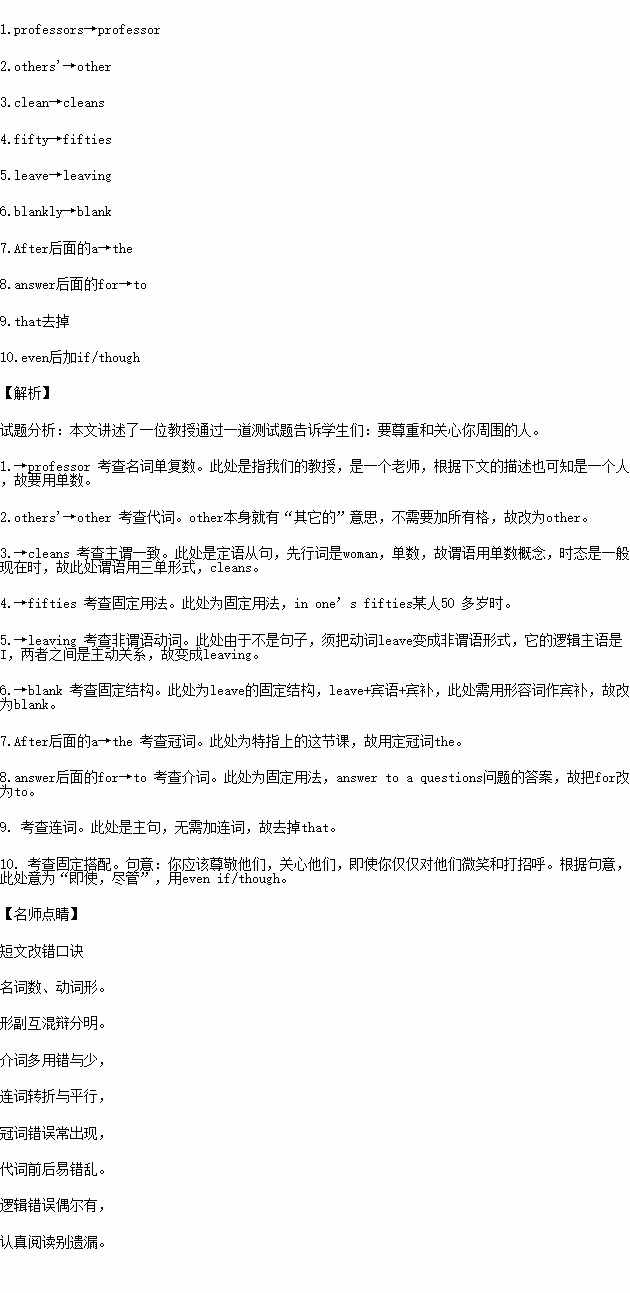题目内容
假定英语课上老师要求同桌之间交换修改作文,请你修改你同桌写的以下作文。文中共有10处语言错误,每句中最多有两处。每处错误仅涉及一个单词的增加、删除或修改。
增加:在缺词处加一个漏字符号( ),并在其下面写出该加的词。
),并在其下面写出该加的词。
删除:把多余的词用斜线(\)划掉。
修改:在错的词下划一横线,并在该词下面写出修改后的词。
注意:1.每处错误及修改均仅限一词。
2.只允许修改10处,多者(从第11处起)不计分。
During my second month of nursing school, our professors gave us a quiz. I had smoothly finished the others' questions when I got stuck on the last one: "What’s the first name of the woman who clean the school?" I had seen, many times, the woman, tall and in her fifty, but how could I know her name? I handed in my paper, leave the last question blankly. After a class ended, one student asked for the answer for the question. The professor said, "As you know, that in your careers you will meet many people. You should respect them and care about them, even you just smile and say ‘hello’ to them.

